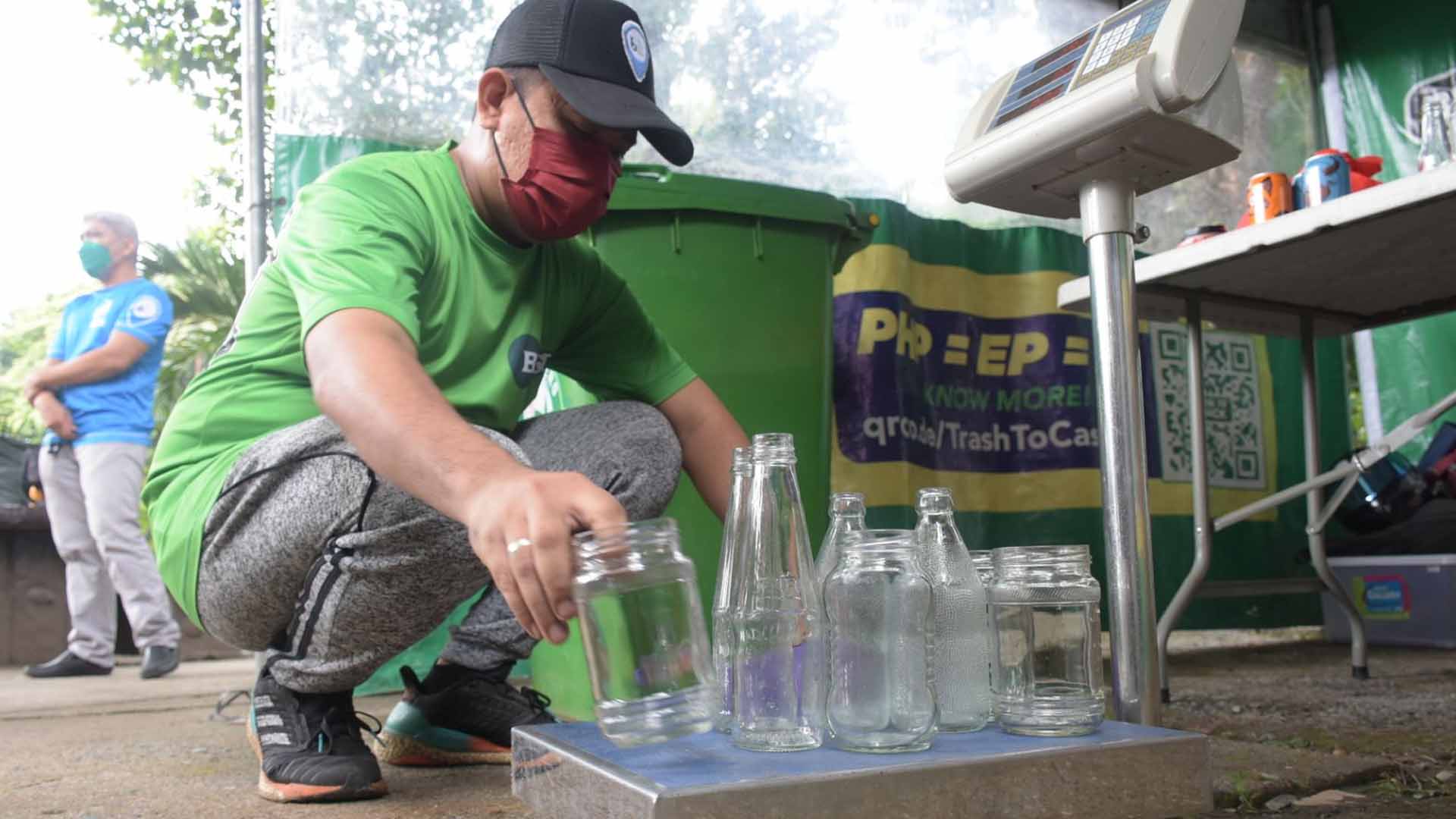San Miguel Corporation’s (SMC) packaging unit San Miguel Yamamura Packaging Corp. has signed on to boost Quezon City’s trash-to-cashback program to help divert garbage away from landfills and, together with waste solutions and technology partners, is eyeing to expand the program to Metro Manila and nearby provinces.
SMC President and Chief Executive Officer Ramon S. Ang said that SMYPC is joining the program to lend its expertise on circular economy—in particular, recycling of glass, which had been the missing component of the ongoing initiative.
The “Trash-to-Cashback” program, implemented by the QC Government in partnership with waste management solutions firm Basic Environmental Systems and Technologies, Inc. (BEST, Inc.) and technology partner BXTRA Philippines (bXTRA), utilizes the firms’ “My Basurero” app which accepts requests for waste collection, including recyclables.
It encourages citizens to be more conscientious about waste segregation. Through the program, they are able to exchange their recyclables and single-use plastics for “environmental points’ which they can use to pay for utility bills such as electricity, water, and internet services through the Bayad App; avail grocery items through the Trash to Cashback Mart, and order food deliveries from the partner merchants.
QC Mayor Joy Belmonte and Vice Mayor Gian Sotto, along with QC Climate Change and Environmental Sustainability Department Head Andrea Villaroman, welcomed the addition of SMYPC as a partner to the program.
“We are honored to be welcomed by the QC local government as a partner in this important and truly innovative project that teaches and incentivizes citizens to minimize their impact on the environment, and segregating their household wastes,” said Ang.
“I’m more than confident that SMYPC’s world-class expertise and long experience in zero-waste or circular economy practices will contribute significantly to the realization of our shared goal of addressing solid waste pollution, and promoting sustainability in our communities,” he added.
While the program had been making headway in the recovery of recyclables and single-use plastics, it had not been able to include glass wastes in its collection as there was previously no partner that could process the materials properly and sustainably.
SMYPC is now on board and has committed to purchase all glass and cullet to be collected, which it will then recycle and make into new glass products. SMYPC’s glass business uses a significant percentage of recycled glass in its manufacturing line.
“Glass will not decompose if left in landfills, but it is highly recyclable and can actually be reused endlessly without any adverse effects on quality or safety. Producing glass products using recycled material also uses up significantly less energy. It’s a system that benefits all, and the only challenge is making sure we are able to collect as many used glass materials as we can,” Ang continued.
Glass produced from recycled material also reduces related air pollution by 20% and related water pollution by as much as 50%, according to the World Wildlife Fund for Nature.
Ang said that already, SMYPC, BEST, Inc. and bXTRA are in talks with several Metro Manila LGUs to implement the trash-for-cash and glass collection program in other cities “very soon.”
“We are grateful to SMYPC for partnering with us on this major expansion for our organization. Glass is among the most common packaging material out there, and with their help, we will be able to recycle a larger volume of it,” said Jan-Vincent Mercado, Senior Vice President for Business Development of BEST, Inc.
“The circular economy is here and now, and we are glad to be working with a company like SMYPC who is not just a large player in the industry, but is among the first movers in sustainable practices for packaging.” Mercado added.
Ang continued: “Recycling and reusing materials have been ingrained in SMYPC from the very beginning. Through the years, we’ve been an active partner in materials recovery—from setting up our own collection hubs and working with many LGUs and like-minded organizations to divert as much recyclable material as we can from landfills.”
“This also aligns with our larger sustainability goals focused on, among other things, water sustainability, solid waste management. By helping encourage waste segregation and proper disposal, we will also minimize the garbage that ends up in our critical water sources and other bodies of water,” Ang said.
In 2017, Ang announced the discontinuation of SMC’s plastic bottled water business to demonstrate its commitment to help reduce the world’s ocean plastics. Today, SMC is spending some P3 billion to dredge and clean-up the Pasig River and Tullahan River system to mitigate flooding and help boost biodiversity. It is also eyeing to implement wide-scale river cleanups for the flood-prone province of Bulacan.
For its part, SMYPC has been implementing its “Balik Bote” program for more than a decade at its facilities, host communities, and in public schools near their areas of operation. The program will enable it to significantly widen its area of coverage, particularly with the planned expansion to other cities and provinces.
SMYPC added that its joining the program is also timely as 2022 is the International Year of Glass (IYOG 2022) and that the United Nations has declared to “promote glass as an important, inspirational and versatile platform to address some of the greatest challenges the world faces in ensuring sustainable development and life quality improvement everywhere, especially in the developing world”.
The company said it has taken the lead in observing IYOG 2022 in the Philippines.



















